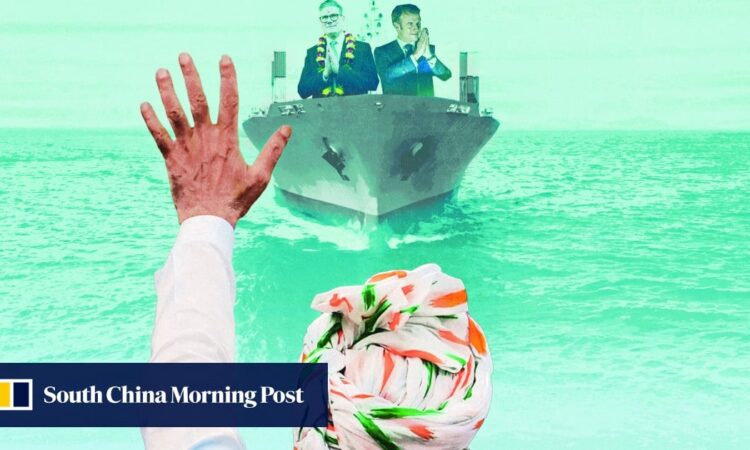
“They see Asian tiger economies and political systems as being in a state of transition,” said British political and security analyst Christopher Blackburn. “These countries already have good regional infrastructure. But Europe can help with boosting and accelerating wealth, development, and human potential.”
The cost-of-living crisis that has gripped Britain and much of Europe was a key driver behind the electoral upsets. Inflation has outpaced household incomes, sparking a squeeze on living standards – partly driven by supply disruptions in the wake of Russia’s war with Ukraine.

France’s New Popular Front campaigned on a platform of economic largesse, pledging to raise the minimum wage, cap prices on essentials and scrap an unpopular pension reform that raised the French retirement age.
Though the leftist coalition may have won the most seats, their expansive economic agenda has raised concerns about the country’s ballooning debt levels, which analysts warns are bound to put the economy under stress.
With none of the three main political blocs securing an outright majority, France now faces the challenge of forming a coalition government. The final economic agenda will depend on which alliance takes the lead.
Both Britain and France are likely to need higher welfare spending to address voters’ economic anxieties. That means tax revenues will need to be supplemented by increased trade income.

Turning tides
Initially, the Labour Party did not seem favourably disposed towards the trade pact, but that stance now appears to be shifting. “It seems they are changing their perspective on India,” said TS Vishwanath, a New Delhi-based trade analyst and principal adviser at international trade advisory ASL-Legal.
Starmer has emphasised that strengthening ties with India will be a priority for London. “The FTA is not just an economic, but also a political statement,” Vishwanath said, adding that he thought the UK’s new Labour government “would be open to negotiations”.
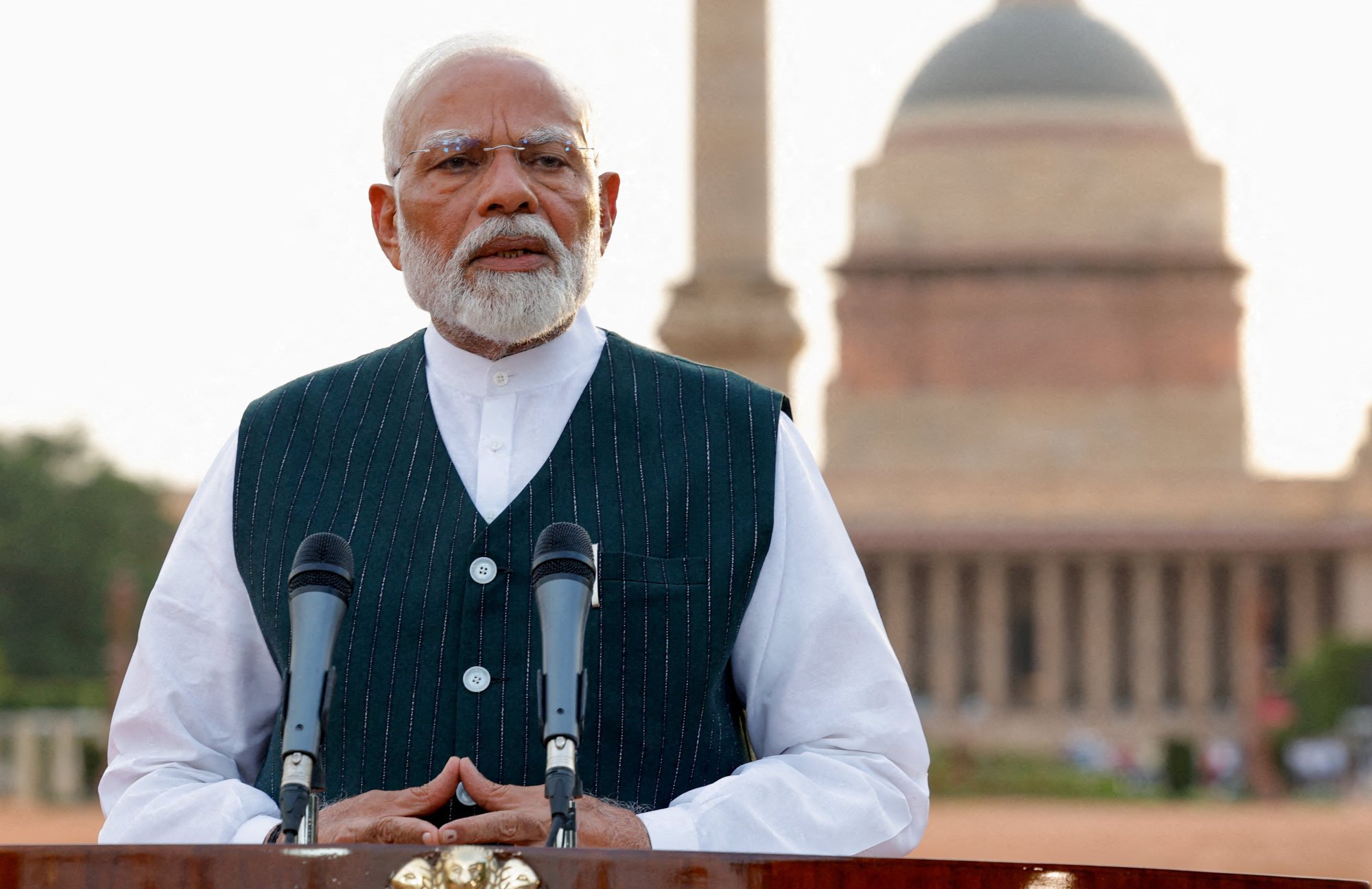
Securing a similar trade deal between the EU and India would likely take longer, said Harsh Pant, an international relations professor at King’s College London. That’s because it requires unanimous agreement among the bloc’s 27 member states before it can be finalised.
The China factor
Opinions are divided on how the UK and France, as well as the EU, will manage their trade dealings with China going forward.
Both Brussels and Washington have accused the Chinese government of unfairly subsidising its EV sector, allowing producers to export cars at artificially low prices, and threatening jobs in the West. China has denied these allegations.
Some analysts suggest the UK could take cues from the EU in guiding its economic relations with China.
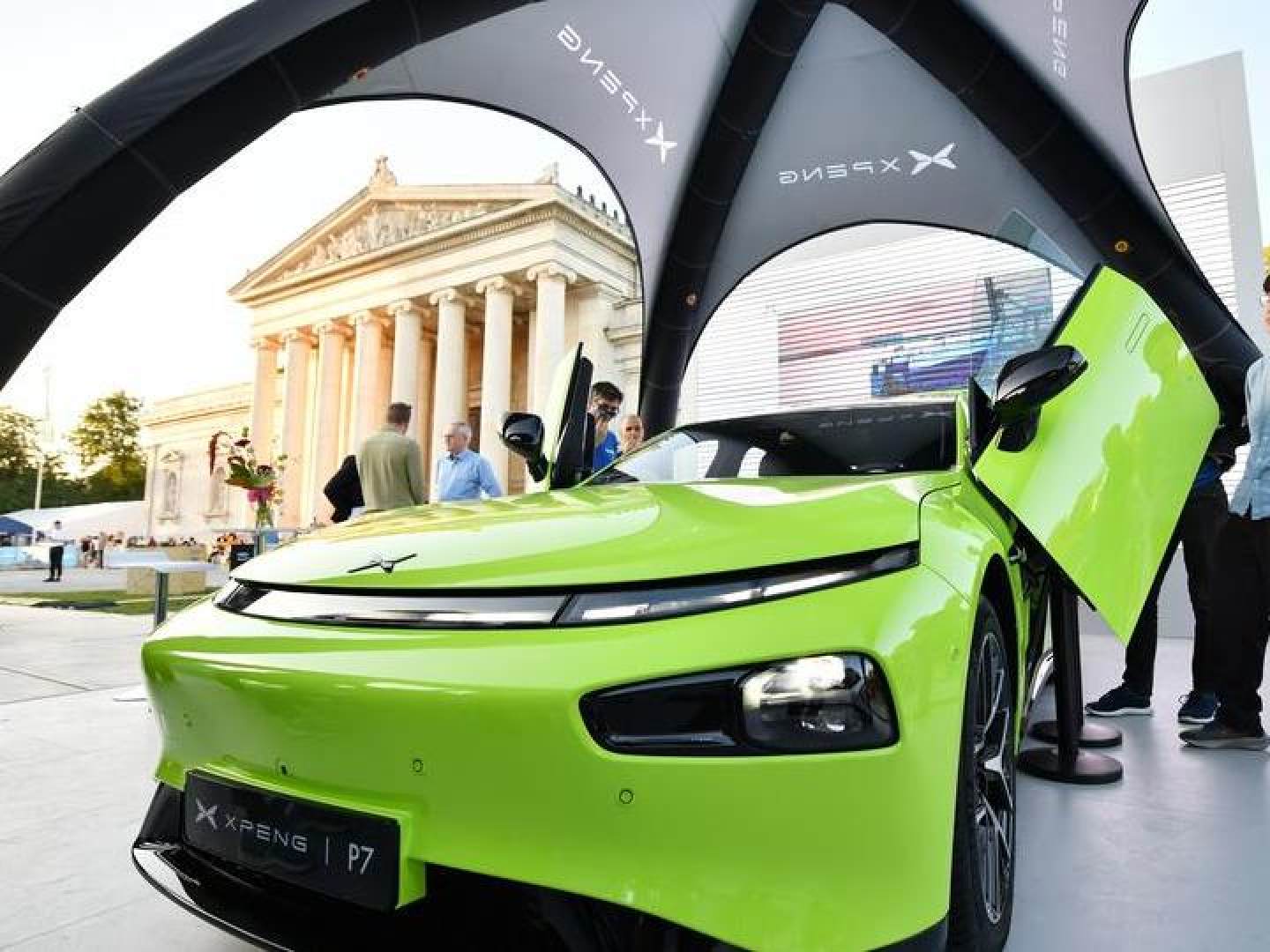
“The UK is under tremendous pressure to decide whether it will follow suit with its key allies, including those in the European Union, by imposing investigations on Chinese state subsidies on electric vehicles,” said Priyajit Debsarkar, a London-based political analyst.
“There will be consequences, as China has already signalled that it could take retaliatory measures against the EU.”
Indeed, Beijing recently launched an investigation into whether the EU adopted unfair trade practices in targeting Chinese companies, examining how the bloc’s Foreign Subsidy Regulation has affected Chinese firms.
Cedomir Nestrovic, a professor of geopolitics at ESSEC Business School Asia-Pacific’s Singapore campus, believes the UK under Starmer is likely to adopt a more moderate economic stance on China compared to the previous, more hawkish Sunak government.
London will be more pragmatic about not damaging economic ties with the world’s second-largest economy, he predicts.
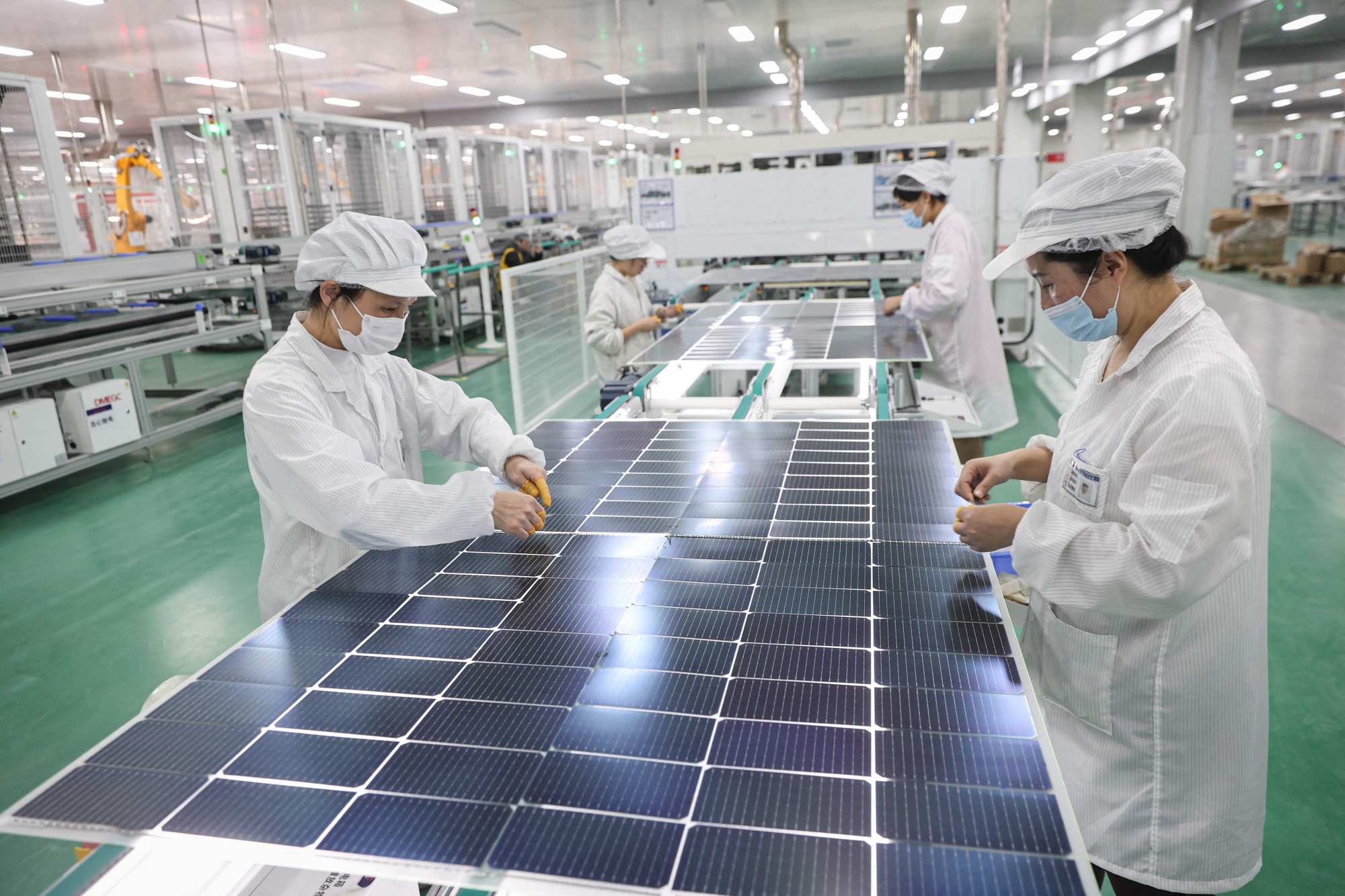
Middle of the road
While Western nations wrestle with how to reduce reliance on China, countries like India and those in Southeast Asia stand to gain by maintaining a more balanced, middle-of-the-road approach.
Attempts to completely sidestep Beijing won’t serve middle powers like the UK and France well, as Biswajit Dhar, a professor at the Council for Social Development in New Delhi, explained, because key parts of China’s sprawling supply chain are irreplaceable in the short term.
Dhar pointed out that India’s own renewable energy sector has faced disruptions after clamping down on Chinese imports following a 2020 border clash between the two nations that strained diplomatic ties. This underscores the challenges even major economies face in fully decoupling from China.
According to Dhar, Britain would likely tread cautiously to avoid significantly upsetting its relationship with China, especially given London’s strained government finances that make it prudent to rely more on private investment as it seeks to address British voters’ economic concerns.
In the near-term, the [UK] economy is set to rebound … but structural challenges remain
“They will put in policies that will encourage the private sector to take the lead in investments,” he predicted of the UK’s approach.
This pragmatic stance aligns with the Labour Party’s stated priority of boosting economic growth and stability – a logical strategy given the political turmoil the country has endured, with four prime ministers and six chancellors since 2019.
This unprecedented turnover has made it “very difficult for companies and investors to anticipate policy changes and work with the government”, said Azad Zangana, senior European economist and strategist at Schroders Asset Management, in a note.
Against this backdrop, Labour’s plan to increase public investment while relying more on private capital could provide the consistency businesses crave.
“Boosting growth to enable greater spending on public services is a logical approach,” Zangana said.
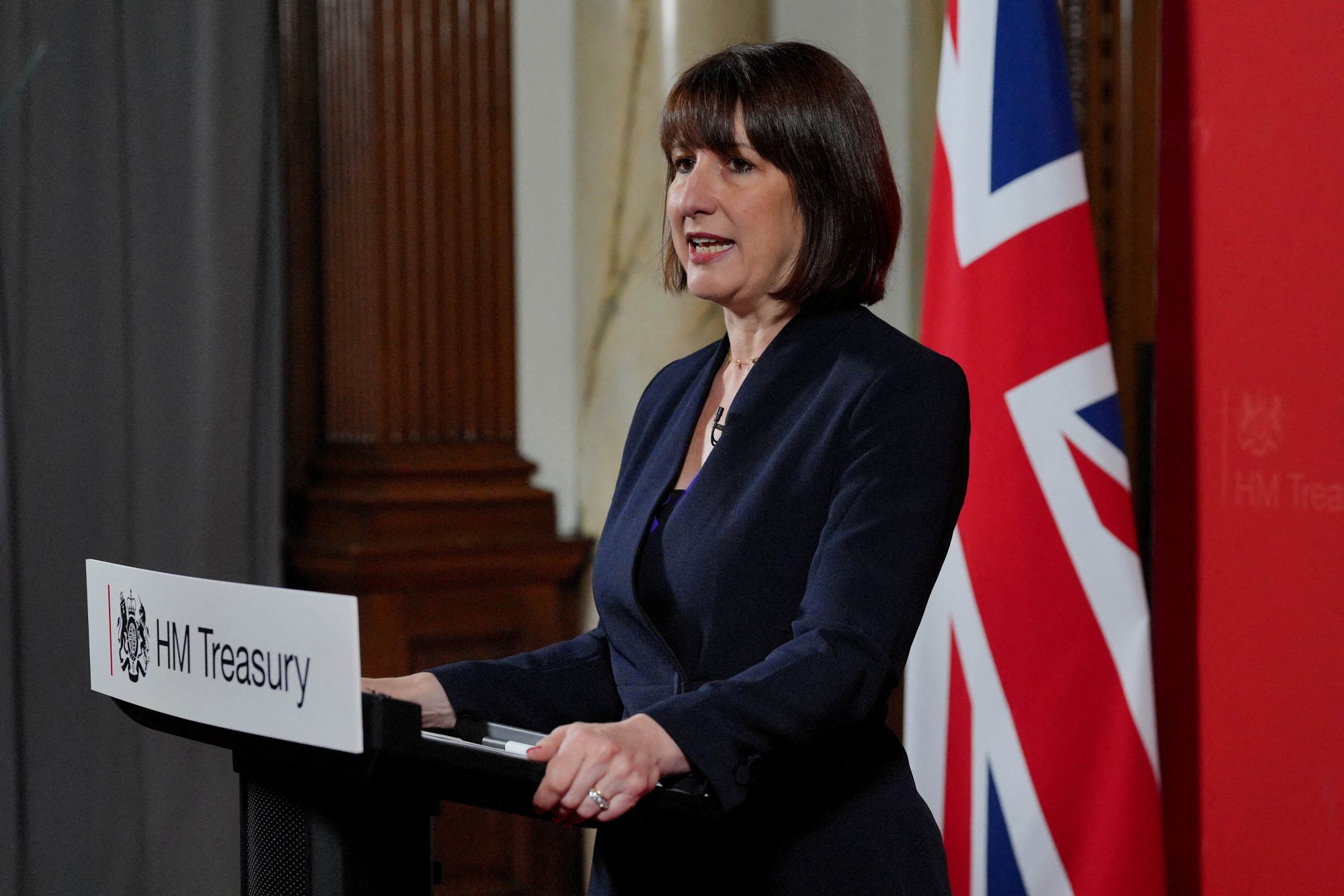
However, he warned that structural challenges like an ageing population and strained trade ties will still need to be addressed. And despite Labour’s tax-freeze pledge, some increases may be inevitable to fund its growth agenda.
Rachel Reeves, the UK’s new chancellor, has indicated that she plans to exclude public investment from the government’s self-imposed borrowing rules in “a signal that Labour plans to borrow more to invest,” Zangana said.
“In the near-term, the economy is set to rebound following a recession at the end of 2023, but structural challenges remain.”
Years of austerity measures and budget cuts implemented by successive Conservative governments weakened Britain’s public services and infrastructure, hampering productivity growth. The nation’s withdrawal from the EU in January 2020 further disrupted the economy, as new trade barriers with the UK’s largest market led to supply chain disruptions and reduced exports.
This Brexit-related uncertainty, combined with the economic shocks of the pandemic, contributed to the UK experiencing one of the deepest recessions among major developed economies. While the economy has since recovered, growth has remained lacklustre, with high inflation, labour shortages, and stubborn productivity issues continuing to weigh on the nation’s economic performance.
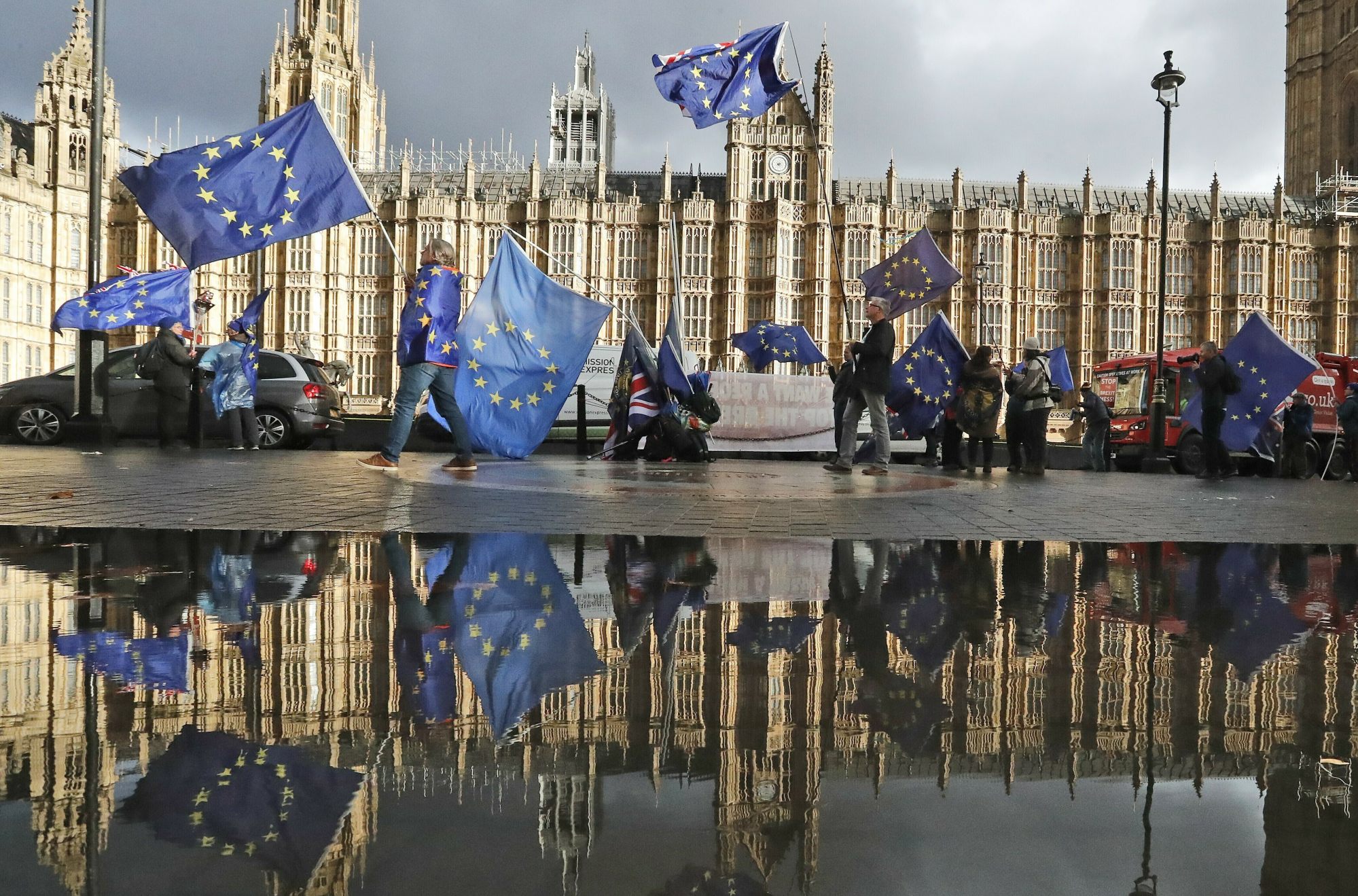
Economic revival?
A trade deal with India, the world’s fastest-growing major economy, could be a game-changer for Britain’s economy. By offering greater access to India’s vast consumer market, it could help offset the new restrictions on trade with the EU post-Brexit. India, meanwhile, stands to benefit from reduced duties and non-trade barriers, potentially boosting its exports.
Fuelling this expansion will be a surge in the total number of Indian households, which is set to grow from 294 million this year to 306 million by 2028 – the largest number globally, BMI consumer and retail analyst Damien Yeo told a webinar.
The trade opportunities are already bearing fruit, with bilateral India-UK commerce hitting US$20.36 billion in 2022-23, up from US$17.5 billion the previous year.
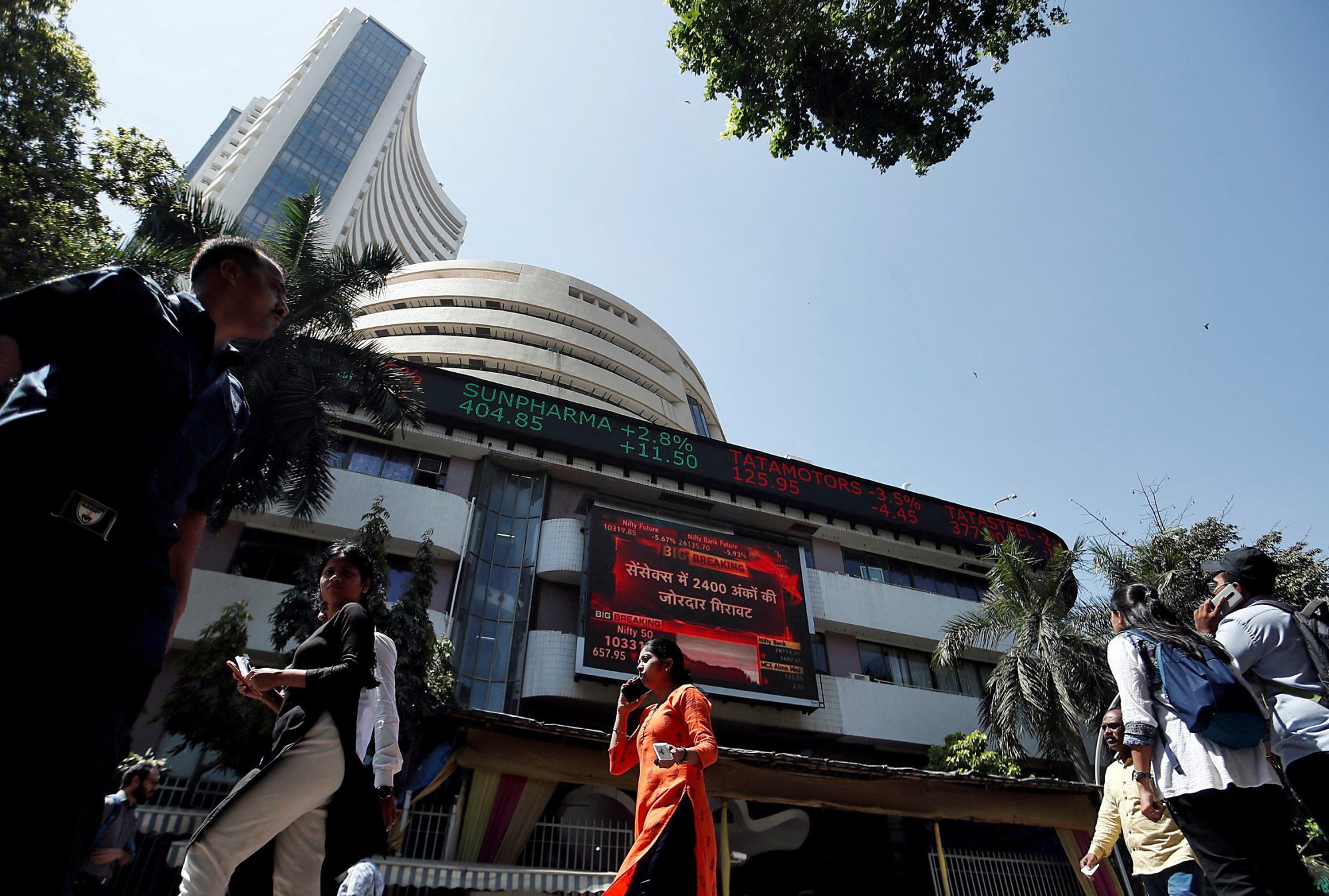
But India isn’t the only Asian economy flexing its muscles. Southeast Asia as a whole is positioned for long-term growth, according to the World Economic Forum, buoyed by factors like a growing workforce, rising incomes, and rapid urbanisation.
The Asian growth story is no longer defined solely by traditional powerhouses like Japan, South Korea, and Singapore. A new generation of players is making its mark, plugging into global value chains and attracting the attention of the West. India, of course, is leading the charge, but countries like Vietnam and Thailand are also emerging as economic heavyweights.
In fact, these fast-growing Southeast Asian nations have begun eyeing deeper ties with regional blocs like Brics, seeking to expand their trade and business horizons. Their appeal is undeniable – Western firms looking to diversify their supply chains have been setting up shop across the region, drawn by its strategic location and abundant opportunities.
The geopolitical implications of this Asian ascent are profound. Only a month after securing his fifth term, Russian President Vladimir Putin paid a visit to Vietnam in June, underscoring the country’s growing strategic importance. Shortly after, US Assistant Secretary of State Daniel Kritenbrink followed suit, highlighting the American focus on this fast-evolving economic and political landscape.
The European Union and France – which has an outsize role in the bloc – are also likely to pursue economic partnerships in Asia.
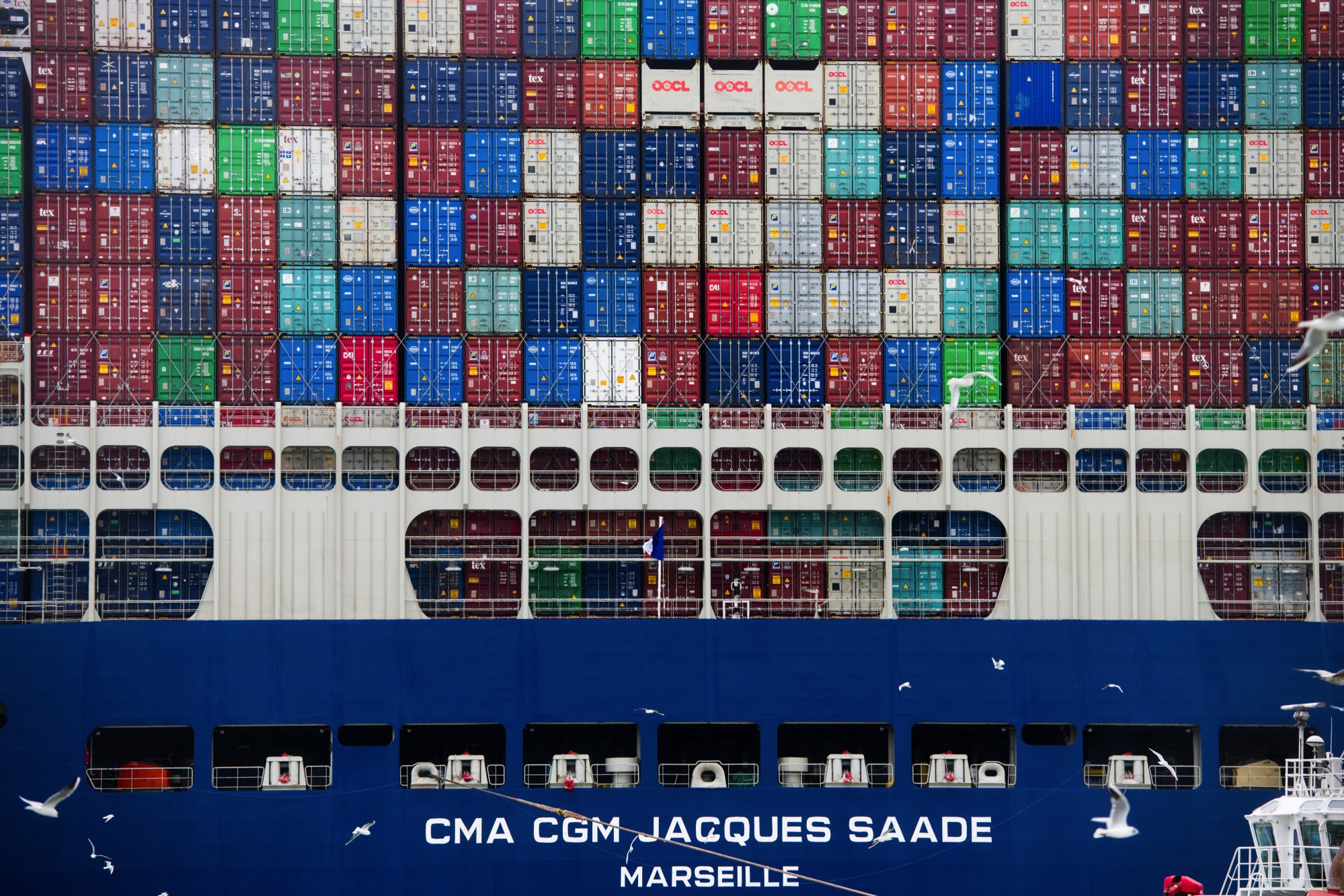
Shared interests
Both France and Europe as a whole recognise the importance of forging trade and business partnerships in Asia’s dynamic economies, according to Stephane Michot, a Paris-based professor of geopolitics and international law. However, he cautioned that such endeavours must not compromise universal values like human rights and labour laws.
Indeed, the rapid expansion of Asian markets has created an interdependent relationship, with these economies now scouring for opportunities in the West as well. This dynamic two-way exchange is shaping global economic ties in profound ways.
Michot also recognised the significant domestic political factors at play, noting that France’s election results are heavily influenced by its own economic situation.
“There is huge inflation in many primary products,” he said. “That affects a lot of people, even in France. That is especially why they decided to vote for the New Popular Front.”
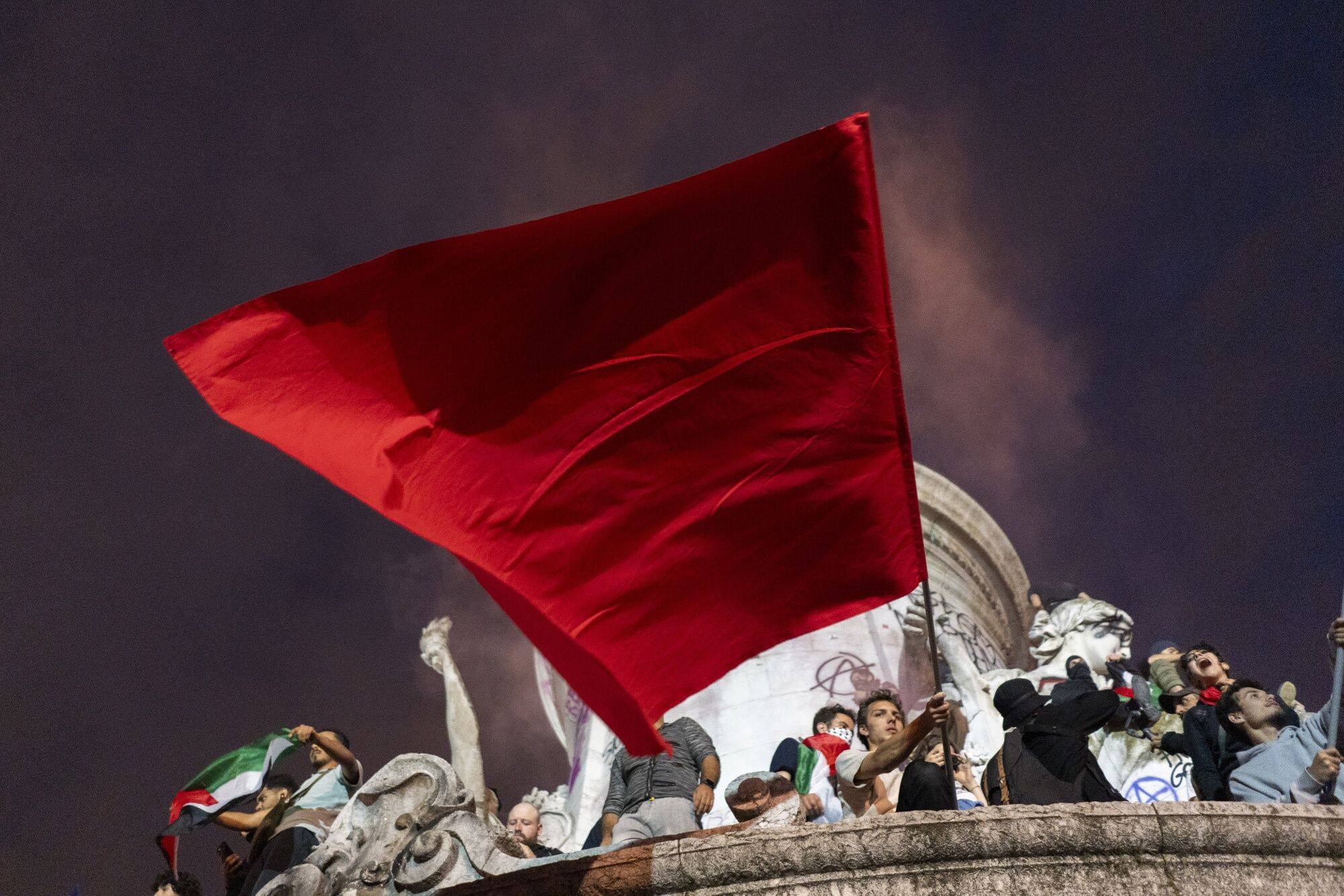
Beyond India, the EU has been actively negotiating free trade agreements with other key Asian partners, such as Singapore and South Korea. These deals highlight the EU’s strategic focus on deepening economic ties in this fast-evolving region, even as it navigates its own internal political challenges.
Asean has already laid the groundwork for deeper economic integration, forging free trade agreements with major partners like China, South Korea, Japan, India, Australia, and New Zealand. These strategic alliances have helped the region capitalise on its collective market power and unlock new avenues for growth.
The India-UK trade deal is expected to serve as a template for the one Delhi has been pursuing with the EU. Beyond the exchange of goods, these agreements could have far-reaching implications for the export of services, particularly India’s vast pool of skilled IT workers.
Vishwanath said it was hard to judge the potential impact of France’s domestic political turbulence on the India-EU negotiations.
“France has always been a supporter of the negotiations,” he said, “but I don’t know what will be the position of the new government.” He cautioned that issues like cross-border movement of people and climate change may come under closer scrutiny.
Yet a radical shift in France’s stance seems unlikely. India has a large market, and it is also seen as a good investment destination, Vishwanath said. Moreover, Southeast Asian nations have demonstrated a consistent openness to trade, and are poised to expand and deepen their economic ties further.






